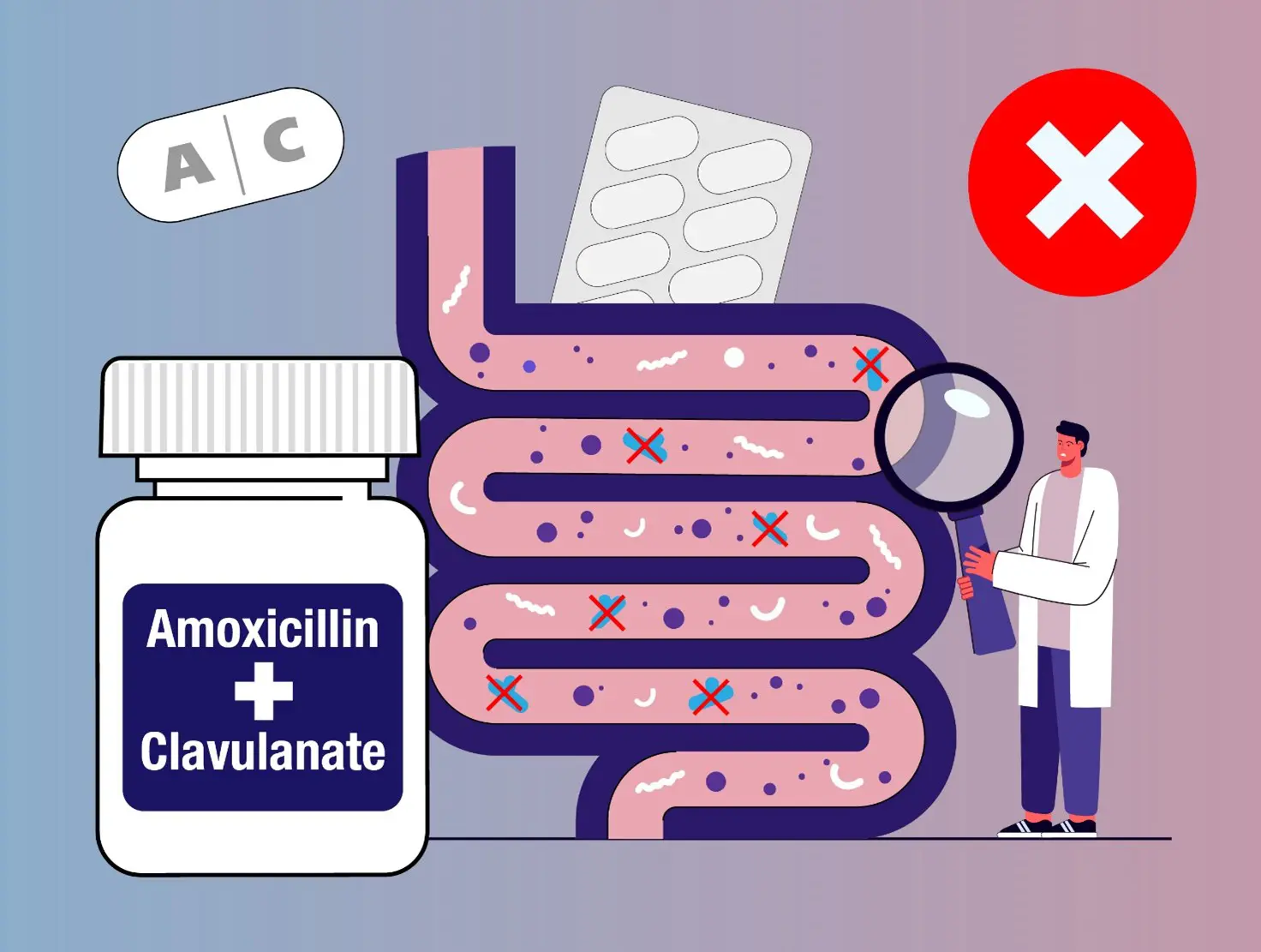THERAPY WITH AMOXICILLIN + CLAVULANIC ACID BRINGS ABOUT DRASTIC DROP IN GUT BIFIDOBACTERIA: ONLY ONE IN TWO CAN SURVIVE

It is known that many drugs are capable of influencing the human gut microbiota. In particular, the impact of antibiotics on the intestinal ecosystem is often compared to that of an atomic bomb capable of devastating the surrounding environment without discrimination. This metaphor is particularly fitting when speaking of broad-spectrum antibiotics which have the ability to eliminate both Gram-positive and Gram-negative bacteria, thus getting rid of both possible pathogens and good bacteria that populate our intestines and play a fundamental role in maintaining eubiosis, the condition of ideal balance.
Amoxicillin is certainly one of the most prescribed broad-spectrum antibiotics, especially for children and adolescents. When Amoxicillin alone is unable to resolve a bacterial infection, it is necessary to administer Amoxicillin + Clavulanic acid, the addition of which further amplifies the spectrum of action of the antibiotic, exerting a bactericidal activity even on some more evolved bacteria that have developed mechanisms of resistance against Amoxicillin.
Among the good bacteria that are most sensitive to the activity of Amoxicillin, bifidobacteria stand out. Microorganism of this genus are the first colonizers of the infant intestine in which they have an almost exclusive presence. They impact important immunomodulatory activities in the host at very early stages of life and influence the physiology of the intestinal ecosystem through their metabolic activities.
The sensitivity to amoxicillin of bifidobacterial species has been demonstrated by numerous in vitro evaluations. However, very little in vivo data are available and therefore only limited knowledge is available regarding the effects of amoxicillin alone or in combination with clavulanic acid on bifidobacterial communities residing in the human gut.
It is starting from these assumptions that recently a group of Italian researchers engaged in the study of microbial genomics conducted an interesting study* to explore the impact of Amoxicillin + Clavulanic acid on the intestinal microbiota of 23 children and compare it with that of 19 healthy children who had not been treated with antibiotics in the previous 6 months (control group).
The results indicated a dramatic reduction of bacteria in children treated with Amoxicillin + Clavulanic acid compared to the control group, resulting in the total content of bifidobacteria being halved.
The antibiotic bombardment creates a vacuum in the intestinal microbiota and what unfortunately often happens is that the space previously occupied by the eliminated bifidobacteria is later occupied by potentially harmful bacteria that grow dramatically. For this reason, it is important to safeguard the balance of the microbiota in order to maintain a state of equilibrium by “refuelling” with beneficial bacteria through the intake of quality probiotics.
* Mancabelli L, Mancino W, Lugli GA, Argentini C, Longhi G, Milani C, Viappiani A, Anzalone R, Bernasconi S, van Sinderen D, Ventura M, Turroni F. Amoxicillin-Clavulanic Acid Resistance in the Genus Bifidobacterium. Appl Environ Microbiol. 2021 Mar 11;87(7):e03137-20. doi: 10.1128/AEM.03137-20. PMID: 33483308; PMCID: PMC8091617.
